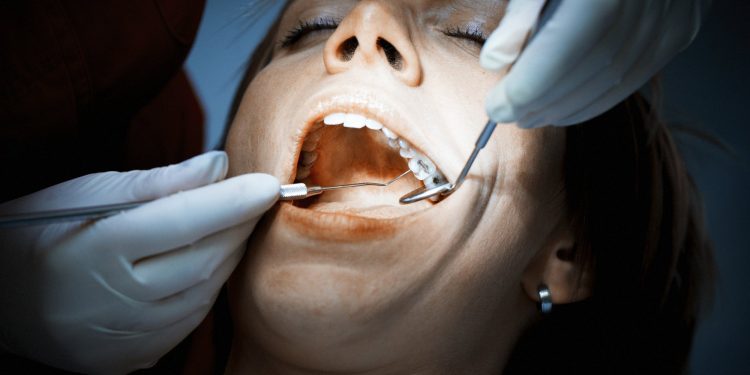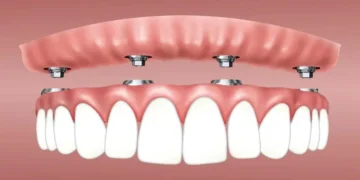You have got all of your adult teeth healthy and straight. Yet you still feel like a wisdom tooth is getting in the way.
Wisdom teeth often do not come in straight, causing a gum disease that can lead to a tooth cavity. Left untreated, you may risk needing surgery, which means having to take antibiotics and suffer significant pain
Table of Contents
The question is, how is a wisdom tooth cavity treated?
What Causes Wisdom Tooth Cavity?
A wisdom tooth cavity is a type of dental decay that develops in the back molars in the mouth according to this dentist in Downey CA. These teeth are located in a hard-to-reach area, which makes them difficult to clean thoroughly and more prone to decay.
Some common causes of wisdom tooth cavities include poor oral hygiene, malocclusion (misalignment of teeth), and consuming sugary or acidic foods that can damage tooth enamel.
Wisdom Tooth Cavity Ttreatment
A wisdom tooth cavity is a common dental problem that can cause discomfort and pain. Treatment for this condition may vary depending on the severity of the cavity such as:
Wisdom Tooth Extraction
A wisdom tooth cavity is a common oral health issue that can lead to discomfort and even infection if left untreated. The most effective treatment for a wisdom tooth cavity is typically tooth extraction.
This involves the removal of the affected tooth by a dentist or oral surgeon. Local anesthesia is administered to ensure a painless experience.
Once the tooth is extracted, the area is cleaned and sutured if necessary. Recovery time varies but typically involves some discomfort and swelling, but this can be managed with pain medication and proper care.
Dental Fillings
Treating a wisdom tooth cavity typically involves a dental cavity filling procedure. The dentist will first numb the area with an anesthetic and remove the decayed portion of the tooth using a drill or other tools.
Once the decay is removed, the cavity will be thoroughly cleaned and then filled with a material such as composite resin or amalgam. The filling will restore the shape and function of the tooth, preventing further decay and providing relief from any pain or sensitivity.
Regular dental check-ups and good oral hygiene practices can help prevent wisdom tooth cavities and the need for fillings.
Root Canal Treatment
A wisdom tooth cavity can cause severe pain and discomfort, often requiring immediate treatment. If the cavity has reached the pulp or nerves inside the tooth, a root canal treatment may be necessary.
This procedure involves removing the infected area, shaping and cleaning the root canal, and filling it with a special material to prevent further infection. The tooth is then sealed, and a crown may be placed to strengthen it.
The root canal treatment helps to save the tooth and alleviate pain. It is important to seek treatment for a wisdom tooth cavity before it worsens and affects surrounding teeth and tissues.
Fluoride Treatments
Fluoride helps to strengthen tooth enamel and can prevent the cavity from getting worse. It can be applied directly to the tooth in the form of a gel, foam, or varnish or can be received through community water fluoridation. Fluoride treatments can greatly improve the health of the teeth and prevent future cavities from forming.
Dental Crown
A dental crown is a tooth-shaped cap that covers the entire surface of the tooth, providing protection and support. The procedure involves removing the decayed portion of the tooth, shaping it to fit the crown, and then placing the crown over it.
This helps to restore the functionality and appearance of the affected tooth, preventing further decay and potential complications. This treatment can greatly enhance the appearance of your smile, making it a valuable tool in the world of cosmetic dentistry.
Tips for Preventing Wisdom Tooth Cavities
There are a few steps that can be taken to prevent wisdom tooth cavities from forming in the first place. Practicing good oral hygiene can help remove plaque and bacteria before it has a chance to damage the tooth.
Brush Your Teeth Twice a Day
Regular brushing of teeth twice a day is vital in preventing wisdom tooth cavities and maintaining good oral health. It removes plaque and bacteria from the tooth’s surface, preventing the formation of cavities. Therefore, it is essential to brush your teeth twice daily as a preventive measure to avoid wisdom tooth cavities.
Floss Your Teeth Once a Day
In order to properly treat a wisdom tooth cavity, it is important to first establish a regular flossing routine. By flossing at least once a day, you can effectively remove food particles and plaque from between the teeth, preventing cavities from forming. Taking care of your oral hygiene and flossing regularly can go a long way in preventing and treating wisdom tooth cavities.
Use Mouthwash
Mouthwash can help kill bacteria and reduce the risk of infection in the cavity. It can also freshen the breath and promote overall oral health. Using a mouthwash with fluoride can also help strengthen the tooth enamel and prevent future cavities. Regular use of mouthwash, along with proper oral hygiene practices, can aid in the successful treatment of a wisdom tooth cavity.
Regular Dental Check-ups
Regular dental check-ups are essential for this as they allow the dentist to identify and treat any small cavities before they become bigger and more problematic. These check-ups also include professional teeth cleaning, which removes plaque and bacteria that can lead to cavities. By scheduling regular dental check-ups, individuals can maintain good oral health and prevent wisdom tooth cavities from developing.
Discovering Wisdom Tooth Cavity Treatment Options
Treating a wisdom tooth cavity consists of various options such as fillings, root canals, or extractions depending on the severity of the decay. It is important to consult with a dentist as soon as possible to prevent further damage.
Take care of your dental health and visit your dentist regularly for check-ups and maintenance. Book an appointment today to ensure a healthy and pain-free smile in the future. Check out our other blog posts for more informative


 Home
Home









